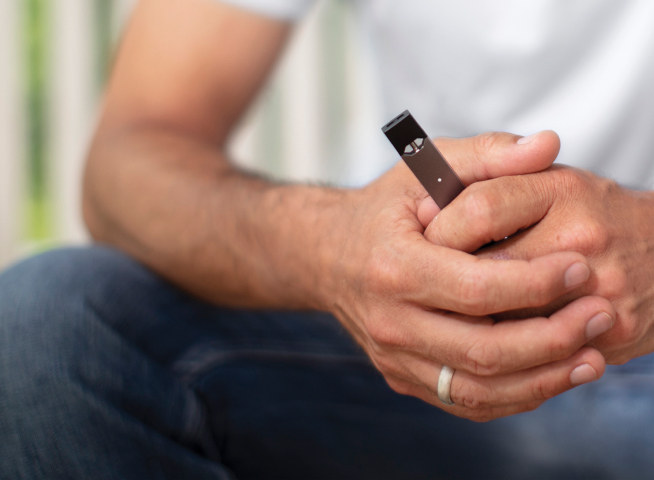Properly disposing of a disposable vape pen is crucial for both environmental protection and public safety. While these devices have grown in popularity due to their convenience and ease of use, they also pose unique disposal challenges. Improper disposal can lead to environmental harm, as disposable vape pens contain materials that are not biodegradable and can release harmful substances if left unchecked. To responsibly dispose of your disposable, vape pen, it is essential to follow a few key steps. Firstly, understanding the components of a disposable vape pen can help guide proper disposal. These pens typically contain a battery, a heating element, and a cartridge filled with vape juice. The battery, often a lithium-ion type, is especially concerning as it can be hazardous if not disposed of correctly. Throwing a vape pen into regular trash can lead to batteries leaking harmful chemicals into the environment, contributing to soil and water pollution.

The best approach to dispose of a vape pen is to separate the battery from the other components if possible. However, most disposable vape pens are not designed for easy disassembly, making it essential to seek out proper recycling options. Many local recycling centers accept electronic waste, including vape pens and batteries, and have the means to safely handle these components. Before visiting a recycling center, it is advisable to check their guidelines on accepting vape products, as not all facilities may accept them. In addition to local recycling options, many vape shops offer take-back programs for used devices. These programs are designed to provide a safe disposal route for users and are often free of charge. Participating in such programs ensures that your og kush pen is handled by professionals who can safely dismantle and recycle the components. If a take-back program is available near you, this is one of the most straightforward and responsible methods of disposal.
Another important aspect is to avoid disposing of disposable vape pens in household recycling bins. Standard recycling systems are not equipped to handle the electronic and chemical components of vape pens, which could contaminate other recyclables or pose safety risks to workers. Therefore, placing vape pens in regular recycling bins is not a suitable option. Lastly, spreading awareness about proper disposal practices is vital. Educating others about the environmental impacts and the correct methods for disposing of disposable vape pens can help reduce improper disposal and its associated risks. By taking a few simple steps, such as using designated recycling centers or participating in take-back programs, you can ensure that your disposable vape pen is disposed of safely and responsibly, protecting both the environment and public health.
A beautiful and healthy smile is more than just an aesthetic feature it is a reflection of overall well-being. Choosing a premier dentist ensures that you receive the highest level of care, whether you need routine maintenance or specialized treatments. Expert dental professionals are committed to using advanced techniques and the latest technology to provide comprehensive oral health solutions. With a focus on both function and aesthetics, a premier dentist can help you achieve a confident and radiant smile while ensuring long-term dental health. One of the key differences of expert dental care is the personalized approach. Rather than offering generic solutions, a skilled dentist takes the time to understand your unique needs, preferences, and concerns. Through detailed consultations and thorough evaluations, they create customized treatment plans designed to enhance your oral health.
Whether you require preventive care, cosmetic enhancements, or restorative procedures, a tailored approach ensures that every treatment is suited specifically to you. State-of-the-art technology plays a vital role in modern dentistry, and a top-tier dental practice invests in the latest advancements. Digital imaging, laser dentistry, and minimally invasive procedures allow for more precise diagnoses and efficient treatments. These innovations not only enhance the quality of care but also ensure a more comfortable experience for patients. From pain-free procedures to faster recovery times, Dental Crowns Houston advanced technology transforms dental visits into stress-free experiences. Beyond technical expertise, a premier dentist prioritizes patient comfort and satisfaction. A welcoming environment, friendly staff, and a compassionate approach can make all the difference in easing dental anxiety. Understanding that many patients feel apprehensive about dental visits, top professionals focus on creating a soothing atmosphere where you feel at ease.
Clear communication, gentle techniques, and sedation options further contribute to a relaxed and pleasant experience. Preventive care is a cornerstone of expert dental services, ensuring that potential issues are identified and addressed before they escalate. Regular check-ups, professional cleanings, and early intervention strategies help maintain strong teeth and gums. Education is also a fundamental part of preventive dentistry patients receive guidance on proper oral hygiene habits, nutrition, and lifestyle choices that impact dental health. By emphasizing prevention, a skilled dentist helps you avoid complex procedures and maintain a bright, healthy smile for years to come. Choosing expert dental care means investing in the long-term health and beauty of your smile. With a combination of experience, innovation, and patient-focused care, a premier dentist can transform your dental experience into one of trust and confidence. Whether you are seeking routine care or advanced procedures, the right dentist makes all the difference in achieving optimal oral health and overall well-being.
Business Trip Massage therapy is a holistic practice that offers numerous benefits for both the body and mind. For centuries, it has been regarded as a natural remedy to alleviate physical discomfort, reduce stress, and promote overall well-being. Today, Business Trip Massage therapy continues to be a popular choice for individuals seeking relief from tension, pain, and fatigue, as well as those simply looking to relax and unwind. The therapeutic touch of a skilled Business Trip Massage therapist can provide a sense of relief, helping the body to heal and rejuvenate naturally. One of the key benefits of Business Trip Massage therapy is its ability to ease muscle tension and pain. Whether caused by physical activity, poor posture, or stress, tight muscles can lead to discomfort and limit mobility. Regular Business Trip Massage sessions help to release the knots and tightness in muscles, promoting relaxation and improved circulation. This not only reduces pain but also enhances flexibility, allowing individuals to move more freely and comfortably.

In addition to its physical benefits, Business Trip Massage therapy is also known for its positive impact on mental and emotional health. The calming effect of Business Trip Massage helps to reduce stress and anxiety, promoting a sense of relaxation and peace. During a Business Trip Massage session, the body’s levels of cortisol, the stress hormone, decrease, while the production of endorphins, the body’s natural feel-good chemicals, increases. This helps to elevate mood, reduce feelings of anxiety, and improve overall emotional well-being. Regular Business Trip Massage can provide individuals with a sense of mental clarity, allowing them to better cope with the pressures of daily life. Business Trip Massage therapy also plays a crucial role in improving sleep quality. Many individuals struggle with insomnia or disrupted sleep due to stress, anxiety, or physical discomfort. By promoting relaxation and reducing muscle tension, Business Trip Massage can help the body unwind before bedtime, making it easier to fall asleep and stay asleep throughout the night.
For those looking to maintain their overall health and wellness, regular Business Trip Massage therapy can serve as an important preventive measure. It helps to improve circulation, boost the immune system, and promote detoxification by stimulating the lymphatic system. Business Trip Massage also supports better posture by addressing muscle imbalances and encouraging proper alignment. By incorporating Business Trip Massage into a regular wellness routine, individuals can enjoy long-term health benefits, including increased energy levels, better flexibility, and improved posture and visit this page. Lastly, Business Trip Massage therapy is a wonderful way to prioritize self-care and mindfulness. In today’s fast-paced world, it is easy to neglect personal well-being in the midst of busy schedules and daily responsibilities. Taking the time to schedule a Business Trip Massage can be an opportunity to focus solely on one’s own needs, allowing the mind and body to recharge.